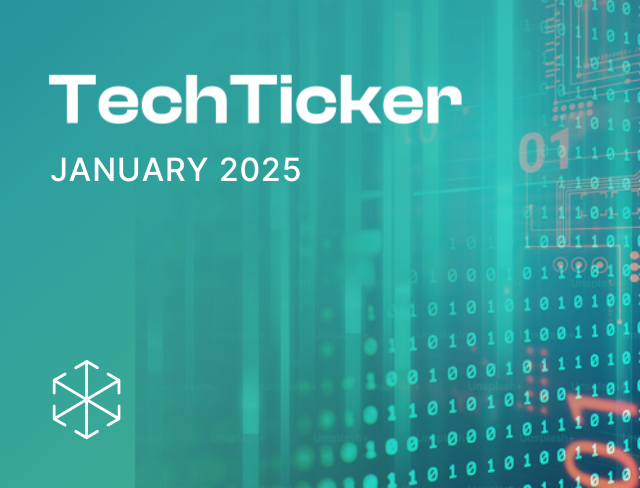Hello!
How are you? No really, we want to know. We could have skipped the chit-chat. But these banalities are welcome in the pandemic.
Now a little about us and our new initiative: FinTales. We are tech enthusiasts. And we happen to be lawyers. A bunch of us also like fintech a little more than the rest (it’s not the healthiest relationship). Our fintech work has also placed us in the Chambers and Partners’ list of ranked fintech law firms. So, we decided to give a creative outlet to our nerd energy in our monthly fintech newsletter: FinTales. In FinTales, we will include snippets of legal and market developments in the fintech space. And give you our two cents on each development.
But why us? Why do we want to add to your (ever expanding) reading list? Here is what you need to ask yourself: Are you curious about disruptive technologies in financial services? Did WhatsApp Pay’s launch rock your boat? Are you interested in offline NFC payment cards? If so, read on. If no, we will part ways here. Have a happy life.
Still here? Awesome.
Now in FinTales we will speak about all things fintech: the good, the bad and the meh. We will cover emerging technologies in digital payments, digital lending, neo-banking and wealth tech. This list is flexible. And we will keep working on it to better suit your taste. You can expect to read what is keeping financial sector regulators on their toes. And how India is inching towards global fintech dominance (or so we hope).
We will try to bring you stuff you do not find in daily columns. But if we fail (geez, we’re lawyers, not politicians – can’t cook stuff up!), we will definitely bring you practical insights from other experts.
Now that we have offered you something, we must ask for something in return. Yes, because that’s how lawyers work (*evil laugh*). We need your frank and unabashed feedback on our initiative, the FinTales, so that over time it becomes a regular feature in your reading list.
We hope that FinTales delights and informs you.
Happy reading 🙂
Thanks!
________________________________________________________
Last month was brimming with excitement for fintech enthusiasts. And we could not have asked for a better start to FinTales. The RBI’s fear of missing out on the fintech party gathered pace. And last month was full of system-shaking developments. Some of these are: WhatsApp going live with UPI, final framework for SRO, capping of UPI transactions and a brand-new RBI innovation hub. Well, we are drubbing our fingers (quite literally). Read-on.
RBI finalises SRO framework
The RBI recognises that fintech (as a sector) is agile. And a straitjacket approach to regulate it may not work (RBI Bulletin November, 2020). The final framework to recognise a Self-Regulatory Organisation (SRO) for the payment ecosystem (notified on October 22, 2020) seems to be an extension of this view. It is also symptomatic of the RBI wanting to increase its influence in the ‘tech’ in ‘fintech’. The SRO will accord tech players a direct channel of communication with the RBI. Which could reduce the information asymmetry between tech players and the regulator. On the flipside, it may bring models operating in the regulatory grey area, into light. Till now, the RBI relied greatly on indirect regulation of digital payment players (through regulated entities like banks). But, with an SRO obligated to report breaches to the RBI, many emerging business models may be more exposed to the RBI scrutiny. It may become harder for players (especially those operating in the regulatory grey area) to fly under the radar.
Interestingly, the Indian Banks’ Association and the Payment Council of India may jointly apply for an SRO licence – a welcome development since representation from both banks and tech players would lead to fairer rulemaking.
Approval to WhatsApp for UPI payments
WhatsApp (WA) Pay finally received permission to go live with UPI (in a graded fashion). In a crowded and commoditised payments industry, WA Pay stands out. The stickiness of its messaging service bundled with payments gives WA Pay an un-commoditised disruptive capability. And payments will help propel many of WA’s larger goals. Like its plan to build an e-commerce business through the app. And cross-selling goods and services like credit and insurance. Players like Reliance Industries are eager to exploit this option (Jio-mart partnership with WA). But like all good stories, this one too has a twist. On the same day WA Pay was green-lit, NPCI capped the number of transactions a third-party application (TPAP) like WA Pay can process (more on this later).
NPCI caps UPI transactions
It is apparent that the RBI is concerned about data-fuelled dominance of fintech by a few players (Working Group Report: Fintech, 2017). And the systemic and national sovereignty risks (many of these are foreign firms) posed by this dominance. The promotion of smaller innovative firms for a competitive ecosystem remains RBI’s priority (Working Group Report: Fintech, 2017). So, as a balancing (and rather daring) act, the NPCI issued guidelines to cap UPI transactions processed by TPAPs at 30% (of UPI transactions in any preceding 3 months) from January 01, 2021. Existing TPAPs must comply with this by January 01, 2023. Critics say this may hurt customer experience by limiting expansion of the UPI capacity of players. And do little for the promotion of competition. It is also not clear how systemic risk will be avoided by this move. And how it will promote financial inclusion. The failures in UPI transaction are already soaring. And with this move, glitch free UPI transactions may soon be a far-fetched dream.
New umbrella entity aspirants seek RBI clarity
NPCI is becoming too big to fail. So, the RBI has proposed to set up a new umbrella entity (NUE) for retail payments – which will act as NPCI’s competitor. Unsurprisingly, major stakeholders (in the payments ecosystem) are interested in having a stake in the NUE. These stakeholders (also prospective applicants) have sought clarity from the RBI on the interoperability between NPCI’s systems and systems that will be developed by them. Many entities (like SBI) eyeing the NUE license also have a stake in the NPCI. And it is not clear if they will give-up their NPCI stake once they get the NUE license. The NPCI is also warming up before the competition starts. Its decision to spin off its Bharat Bill Payments business (into a separate subsidiary) and diversification of shareholding are steps towards that direction.
Diversification of the NPCI shareholding
On November 26, 2020, the NPCI announced that fintech players like Paytm, PhonePe, PayU and Amazon Pay are now its shareholders. NPCI’s new shareholding pattern has representations from both banking and technology players. Originally only a cohort of banks were shareholders of the NPCI. NPCI’s decision to diversify shareholders may be reactionary, given the growing competition it could face from the NUE. This step may also reduce concentration of power with the banks. And though the fintech players have a far smaller shareholding in NPCI (compared to larger banks), at least now they have a seat at the table.
Payment aggregator and PPI issuers can now maintain two escrow accounts
Risk diversification and business continuity are fundamental to financial regulation. This was manifested in the RBI’s recent notification which allows payment aggregators (PAs) and e-wallet issuers to have an additional escrow account to pool funds. Earlier this year (when PAs maintained escrow account with a single bank), we saw how the RBI’s moratorium on Yes Bank led to merchants facing risk of settlement defaults (from Yes Bank’s escrow account). With the recent setbacks to the Indian banking ecosystem (most recent being Laxmi Vilas Bank’s downfall), this is a much-needed safeguard to avoid any systemic risks.
RBI fines payment entities
On November 20, 2020, the RBI fined five non-bank PPIs (including PhonePe and Sodexo) for breach of regulatory guidelines. The fines ranged from 5 lakhs (on Delhi Metro) to 2 crores (on Sodexo). Interestingly, the RBI did not reveal the reasons for the fine. This led to speculations around the regulatory breaches by these entities (here). It may be a good move for these companies to reveal the nature of breach. And what they are doing to fix it.
RBI sets up financial innovation hub
The RBI has been prepping to dive deeper in the fintech space. And regulation of peer-to-peer lending platforms, PAs and payment gateway guidelines and enabling framework for regulatory sandbox are symptomatic. Also, the RBI has recognised that fintech is a double-edged sword. And hinted that its biggest worry is that marginalised consumers will be left behind in the flurry of financial innovation. So, the RBI has proposed setting up of a financial innovation hub (FIH) to remedy this imbalance and project itself as an innovation-friendly regulator. The governing council of the FIH will be constituted by industry veterans, academicians, and financial experts. The RBI has set up the FIH with a hope of bringing in inclusive innovation. And to keep-up with the technological developments.
RBI’s boost to digital payments security and contactless card payments
In 2019, a governmental audit of the NPCI found more than 40 security vulnerabilities (many of which fell in high risk category). The insufficiency of banks’ technological infrastructure to cope with the explosive growth in volume is already making headlines (outage of HDFC’s and SBI’s IT systems). Lack of a robust information technology infrastructure is also raising security concerns along with operational difficulties. Any security breach may impact the hard-earned trust of consumers in digital payments. Alarmed by this, the RBI has decided to issue guidelines for digital payment security controls. The guidelines will prescribe uniform security standards, which will be agnostic of technology or platform. The RBI also gave another boost to digital payments, and increased the limit for contactless card payment from INR 2,000 to INR 5,000. This may be a good start to the new decade for which ‘contactless’ and ‘digital’ already seem to be the new buzzwords.
________________________________________________________
On this positive note, we wish you a happy new year (in advance). We can’t wait to see you on the other side.
See you next month fellow fintech enthusiasts.
Stay safe,
Ikigai Fintech Team










